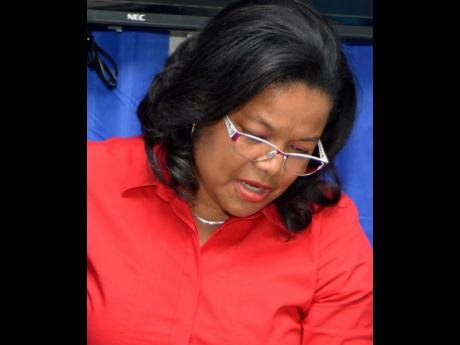Omicron conundrum
Schools set to reopen despite spike; Gov’t mulls vax for 5-y-o and upwards
The Government is facing a conundrum with the planned resumption of face-to-face classes on January 3 and a steady increase in COVID-19 cases as the highly transmissible Omicron variant continues its rampage globally, but Health and Wellness...
The Government is facing a conundrum with the planned resumption of face-to-face classes on January 3 and a steady increase in COVID-19 cases as the highly transmissible Omicron variant continues its rampage globally, but Health and Wellness Minister Dr Christopher Tufton says children remaining outside of the classroom will result in more grave consequences.
Jamaica has moved from recording fewer than 100 COVID-19 cases daily up to December 23 to 365 confirmed cases on Wednesday, increasing the total number of confirmed infections since the start of the pandemic to 93,591.
Of that figure, the Ministry of Health and Wellness confirmed that children between zero and 17 years accounted for 10,382 of the cases and 13 deaths.
Some 152,454 doses of the Pfizer vaccine have been administered to those between the ages of 12 and 18.
A total of 69,731 children are fully vaccinated, representing 21.3 per cent of the eligible population.
Omicron has not been officially confirmed in the island although Tufton has disclosed that a visitor from the United Kingdom had tested positive for the variant upon returning to the European country.
On Thursday, the minister told The Gleaner that concerns remained high about the impact on the population, which has a vaccination rate of 19 per cent.
He said the ministry’s response will centre on the COVID-19 protocols that are being pushed.
“The virus is a concern, but there is also a big concern around keeping our children outside of the classroom for nearly two years and the impact it is having on their own development and their mental state,” Tufton said in a Gleaner interview. “So it really is a matter of how we weigh both risks and what provisions we put in place. The ideal scenario is to get them back into the classroom.”
Two weeks ago, Prime Minister Andrew Holness warned that the COVID-19-induced disruption in face-to-face classes will have an impact on productivity and skills acquisition in the years to come.
“There’s no question about it. We are aware of that, and that is why we are rapidly moving to implement some of the recommendations of the Education Transformation [Commission],” he said then.
MORE HOSPITALISATIONS
“We have to send our children back to school. There’s no question about it,” Holness insisted.
But a CNN report has indicated that Omicron has caused a significant increase in the number of children being hospitalised in the United States, with a five-fold increase in paediatric admissions in New York City.
It said that the busy holiday season created the perfect situations to drive up infection rates in children across the country than ever before, and paediatric hospitals are bracing for it to get even worse.
Senior Medical Officer (SMO) at Bustamante Hospital for Children Dr Michelle-Ann Richards Dawson, in a Gleaner interview on Wednesday, said doctors are anticipating an increase in the number of children infected because this is the population (zero to 11) that is unvaccinated.
She said, however, that it is not yet clear how they will present, with reports of the variant being milder than others.
“Currently, as we are now, we are seeing an increase in respiratory cases as a reflection of what would have happened in September when the children went back to school ... . So we anticipate that with this new variant, apart from our usual respiratory illness, we will see an increase in cases,” she said, noting that preparations for a fourth wave of infections are in high gear.
Only three children are currently hospitalised as a result of COVID-19 across the island – one each at the Bustamannte, Savanna-la-Mar and University hospitals – and their symptoms are reportedly mild.
The Bustamante SMO is, however, calling for children between five and 11 years to be vaccinated although noting that this would have to be driven by a policy decision from the ministry.
Tufton told The Gleaner that Cabinet is mulling the idea and confirmed that talks are under way with manufacturers of the Pfizer vaccine, which has been approved for children in some countries.
However, he said that the vaccine for children under 12 is a different formulation and is not available on the market at present.
“So it’s not that we can administer what we have. We have to get the dosage or formulation that applies to children, but we are having some dialogue on the matter,” said Tufton.
Meanwhile, Dr Tracy Evans-Gilbert, consultant in paediatrics, public health and tropical medicine, has concluded that children, for the most part, will fare better amid the anticipated surge.
“We might see an increase in admissions by the force of infections, so we need to mitigate and prepare for that. A very small number of less than one per cent may get severe forms of COVID, called multisystem inflammatory syndrome, which will require intensive care in some cases,” she told The Gleaner.
Evans-Gilbert said with the available data, Omicron does not appear to significantly change how children are impacted, noting that the danger remains with the unvaccinated adult population.
“We are seeing that Omicron is not a danger to children, but it is still a danger to susceptible adults, and so the single most important thing that we can do to prepare is to achieve high adult vaccination coverage as a great priority,” she said.

